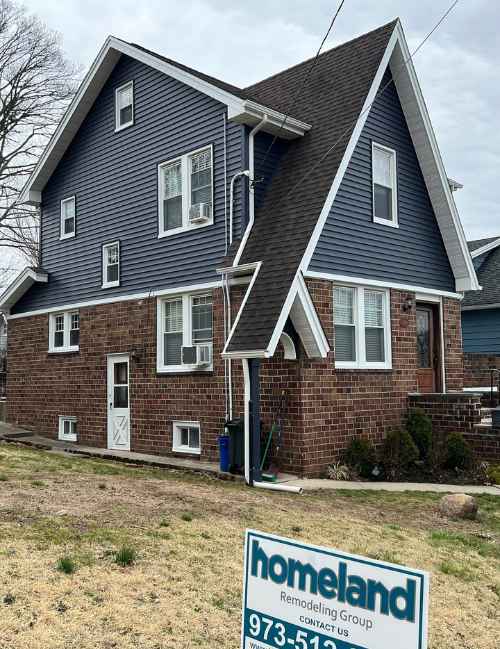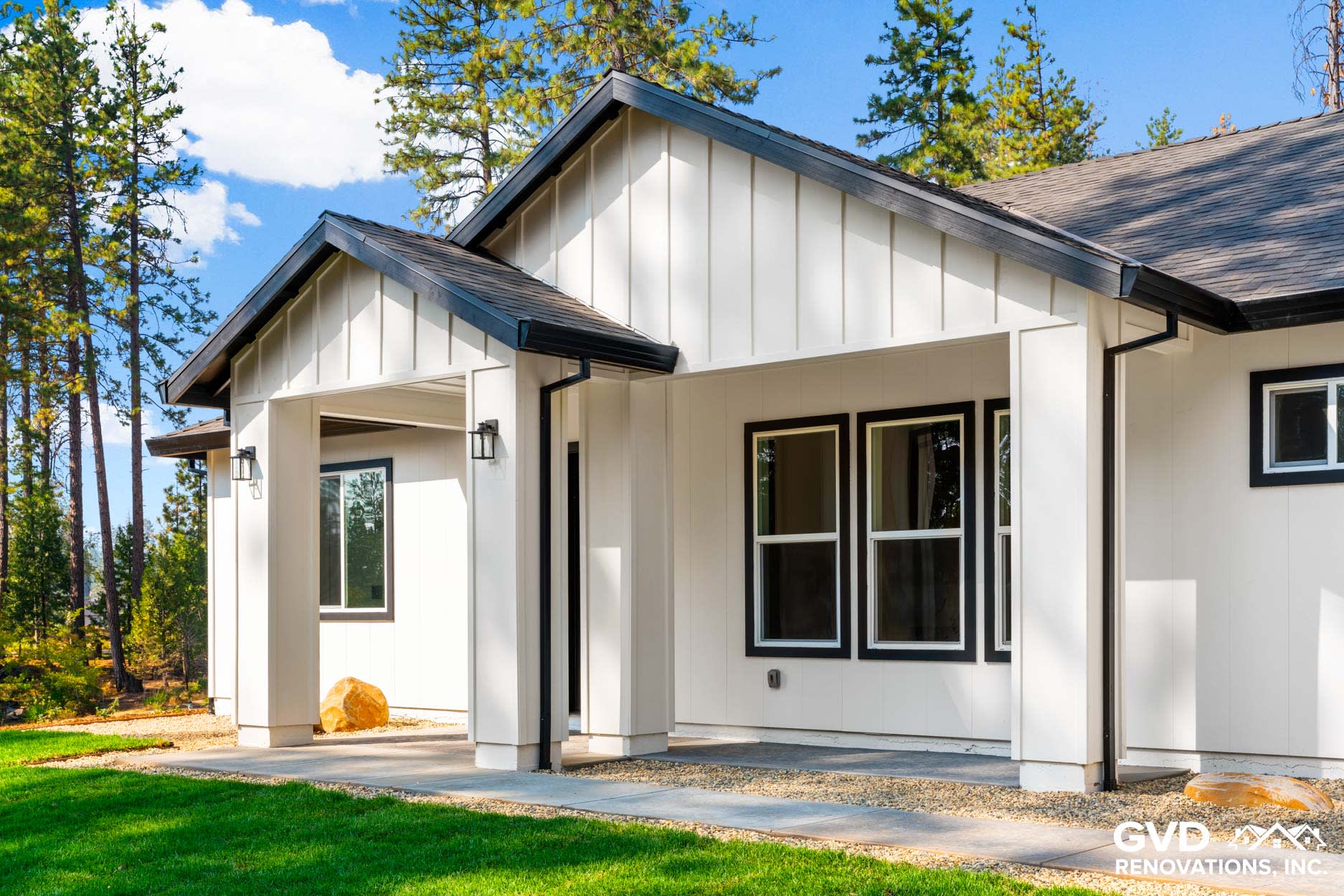Reliable Morris Siding Contractor Specializing in Residential Siding Projects
Reliable Morris Siding Contractor Specializing in Residential Siding Projects
Blog Article
The Essential Guide to the Numerous Kinds Of Siding and Their Special Advantages
In the world of home improvement, choosing the appropriate exterior siding is an important choice that impacts both visual allure and useful performance. With so several alternatives to consider, which house siding material truly stands out for your details project?
Wood House Siding
Wood home siding, a popular selection for household exteriors, uses a timeless aesthetic that combines natural charm with architectural stability. This siding material is readily available in numerous designs, consisting of clapboard, roof shingles, and board-and-batten, enabling home owners to personalize their façade to match their style preferences. Wood house siding is generally crafted from durable species such as cedar, redwood, or pine, which are understood for their resilience and capability to withstand ecological stress factors.
Among the key benefits of timber house siding is its exceptional insulation residential or commercial properties, which can add to energy efficiency and reduced heating prices. In addition, timber exterior siding is eco-friendly, making it an environmentally pleasant choice when sourced sustainably. Routine upkeep, consisting of painting or staining, can lengthen its life-span and boost its look, permitting house owners to protect the all-natural charm of the wood.
However, possible disadvantages include susceptibility to insects, rot, and weather damages, demanding sufficient treatment and upkeep - morris siding contractor. Despite these concerns, when effectively taken care of, timber home siding can provide a gorgeous and sturdy service that boosts the personality of a home while supplying a cozy, inviting ambience

Plastic Exterior Siding
Vinyl house siding has arised as a leading choice for homeowners looking for a low-maintenance outside option that incorporates toughness and affordability. This functional material is crafted from polyvinyl chloride (PVC), making it immune to various weather condition conditions, including dampness and UV rays. Therefore, plastic exterior siding does not warp, rot, or fade, ensuring resilient aesthetic appeal.
Among the main advantages of plastic exterior siding is its comprehensive variety of colors and designs, permitting homeowners to attain the wanted look for their home without the demand for constant repainting. Additionally, vinyl house siding is easy to install, which can considerably lower labor prices during construction or remodelling jobs.
Plastic exterior siding also adds to energy effectiveness. Lots of alternatives attribute insulation support, which improves thermal efficiency, helping to preserve comfy interior temperatures and potentially reducing energy bills. Additionally, its smooth surface assists in very easy cleansing, needing only regular cleaning with a yard hose to eliminate dirt and debris.
Fiber Concrete Exterior Siding
Fiber concrete home siding has actually acquired traction among home owners and builders alike as a result of its exceptional combination of durability and aesthetic convenience. Made up of a mixture of cellulose, sand, and concrete fibers, this siding alternative is engineered to hold up against extreme weather, including high winds, hefty rainfall, and temperature variations, making it a resilient selection for household exteriors.

Among the main benefits of fiber concrete house siding is its resistance to parasites, such as termites, and its non-combustible nature, offering enhanced fire security. morris siding contractor. In addition, it is offered in a wide array of styles, shades, and structures, enabling homeowners to attain their preferred aesthetic without giving up efficiency
Another benefit is its low upkeep demands; fiber cement home siding usually needs painting or staining every 5-10 years, which is less regular than other materials. Its longevity adds to a reduced total cost of ownership, as it lowers the need for regular repairs or substitutes.
Eventually, fiber concrete home siding represents an excellent financial investment for those looking for a durable, appealing, and versatile outside choice, combining both form and function to improve the home's aesthetic appeal.
Steel Siding
The appeal of metal house siding hinges on its robust toughness and modern aesthetic charm, making it a preferred option for modern design. Offered in materials such as light weight aluminum and steel, metal home siding provides an array of surfaces and colors, enabling home owners to accomplish a personalized look that complements their design vision.

Power efficiency is one more substantial advantage, as lots of metal siding items are developed with insulation alternatives that help you can try this out manage interior temperature levels. This can cause reduced power expenses gradually. In addition, metal home siding Web Site is frequently recyclable, making it an eco-friendly selection for sustainability-minded property owners.
The setup procedure for steel house siding can be relatively simple, leading to a quicker turn-around time for construction projects. Generally, metal home siding combines functionality and design, making it a sensible alternative for those looking for a enduring and aesthetically appealing outside finish.
Brick and Rock Home Siding
Brick and rock exterior siding stands apart as an ageless selection that boosts the visual beauty of any home. Known for their resilience and reduced upkeep, these materials offer an outstanding roi while raising the residential property's curb allure. Readily available in different shades, textures, and patterns, block and stone can be customized to match varied building styles, from traditional to modern.
One of the main benefits of block and stone siding is their energy efficiency. Both products possess natural protecting buildings that aid control indoor temperatures, potentially lowering heating & cooling costs. Additionally, they supply remarkable fire resistance compared to other home siding alternatives, adding to enhanced security.
An additional benefit is their durability. Brick and stone can last for decades, usually requiring marginal maintenance beyond periodic cleaning. Unlike timber exterior siding, they are impervious to bugs and rot, ensuring a long-lasting exterior that endures the components.
Verdict
In summary, the selection of exterior siding substantially impacts a home's visual allure, power effectiveness, and maintenance requirements. Each kind of siding-- whether timber, vinyl, fiber block, metal, or cement and stone-- check that supplies special benefits customized to different home owner choices and ecological problems. Recognizing these options makes it possible for informed decisions that improve both the longevity and aesthetic appeal of domestic outsides. Ultimately, choosing the ideal home siding is crucial for accomplishing a balance between capability and layout in household architecture.
One of the primary benefits of wood exterior siding is its exceptional insulation homes, which can contribute to power performance and lower heating costs. Additionally, timber exterior siding is naturally degradable, making it an ecologically friendly alternative when sourced sustainably.One of the main advantages of steel home siding is its resistance to numerous environmental factors.Power performance is one more significant advantage, as numerous metal home siding items are designed with insulation choices that aid regulate indoor temperature levels. Each kind of siding-- whether wood, plastic, fiber metal, cement, or block and stone-- uses special benefits tailored to numerous house owner preferences and ecological conditions.
Report this page